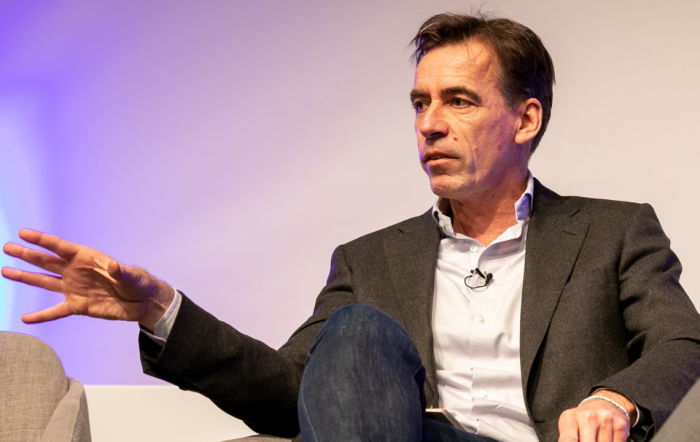Get analysis, insight & opinions from the world's top marketers.
Sign up to our newsletter.
2021 has been memorable for a lot of the wrong reasons. But it will also be remembered for some of the right ones. We may well look back on it as a turning point for our industry on a number of critical issues, says WFA CEO, Stephan Loerke.

Most notably, 2021 was the year that the industry – and business at large – got serious on climate change. I have heard lots of opinions expressed about Glasgow's COP 26. People tend to agree that it went further than expected and that the commitments made are way down on where we need to be.
The big boon however was the extent and scale to which industry turned up and was part of the discussion.
And it is very clear that marketing has a key role to play. Sir David Attenborough told us at Global Marketer Week 2021 that climate change is now a communications challenge. With the WFA Planet Pledge launched in April and building continued momentum, marketers are showing they can embrace that challenge.
2021 also saw huge changes in the way employers and workers interact and I’m convinced this year will be a watershed. 2021 has compounded lockdown working in a way that we are unlikely ever to return to our pre-Covid routines. By necessity or design, people are reimagining and reconfiguring their careers. Successful companies will work much harder to make sure they have the talent to win when it comes to marketing.
The actions that need to be taken in 2022 as a result of the WFA-led Global DEI Census should help ensure that our industry attracts the brightest and best. For the first time, we’ve held a mirror up to our industry globally. It tells us that on some counts the marketing industry is a good place to be. But it is clearly not sufficiently diverse, inclusive and equitable on most measures, such that one in seven would still leave our industry as a result of what experience.
Compelling DEI strategies that all marketing organisations need will address ageism, involve flexible work arrangements for care-givers and develop innovative ways of fostering greater workplace inclusion for all groups.
Another year with most of the world in lockdown has also accelerated a host of other challenges. With people, and kids in particular, spending a lot of time in front of screens, we are witnessing a major uptick in regulatory activity. Some want to curtail the marketing of food and alcohol on health grounds. Many want to take on targeted advertising online for the sake of people’s privacy.
And the ‘year of the whistleblower’ has also confronted the ad industry, and society at large, with challenging revelations about the safety and tenability of the platform business model. They have led us to turbo-charge the agenda of the Global Alliance for Responsible Media, to try and deliver solutions to those issues that are directly linked to the digital ad ecosystem. But many of the revelations go way beyond the ad industry’s remit and touch upon issues such as election integrity, mental health and social cohesion. They will inevitably require regulators to intervene.
Looking back at 2021, so much has happened it feels like the whole world has been operating on ‘China speed’.
It’s tempting to want to draw a line under it and turn the page. But that would be wrong. 2021 wasn’t a wasted year. In many respects, it has laid the foundation for making the ad industry better, fairer, more open and resilient. And that’s a good starting point to embrace with confidence the challenges that 2022 will throw at us.